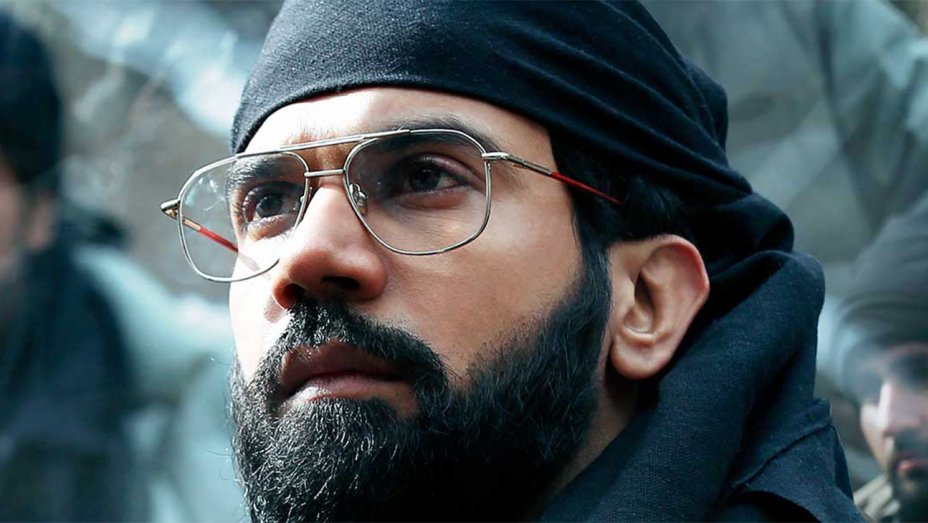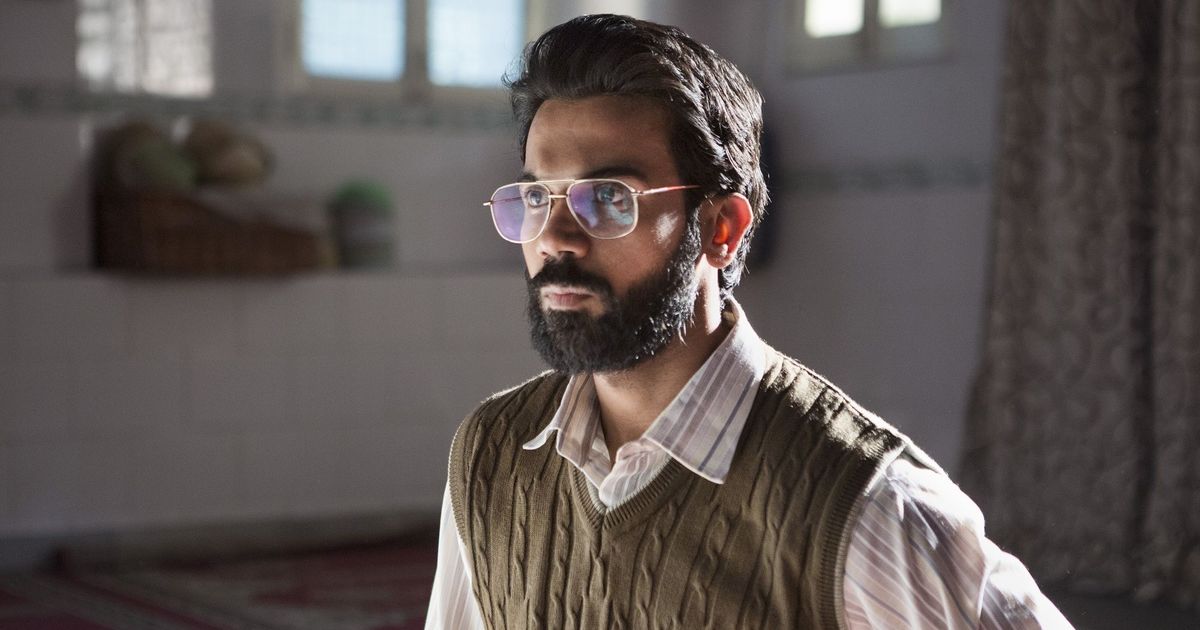
Director: Hansal Mehta
Cast: Rajkumar Rao, Keval Arora
Rating: 2 stars
It should be established at the onset that this review will look at the film in its entirety since it is based on the life of a man whose (mis)achievements are well-known. This review is, therefore, technically spoiler-free.
In one of the early scenes of Hansal Mehta’s Omertà, Omar Sheikh, under the guise of Rohit Verma roams the streets of Paharganj, where he befriends four foreign tourists and later abducts them because of the atrocities their respective governments committed on his “Muslim brothers and sisters”. When they plead that they haven’t personally harmed anyone and all the atrocities are their governments’ doing, Omar responds with a curt, “But you chose your government.” This exchange sets the tone for the rest of his brutalities.
A student at London School of Economics, Omar is moved by the plight of the Muslims suffering in the Bosnian War. He collects newspaper cuttings of articles and images, no matter how gruesome, to motivate himself to fight the fight. Any shred of vigilantism is shed when he starts meeting the local maulana in London, who puts him in touch with his counterpart in Karachi. Thereafter begins Omar’s descent into hell: militant training camps, indoctrination about the virtues of the “holy war”, and fundamentalism ensue. In the meantime, Omar’s father, played by the Delhi University Professor Keval Arora in his Bollywood debut, cuts a poignant picture of a man suffering in silence as he watches his son tread the wrong path.

Image: scroll.in
One of the fundamental problems that ails Hansal Mehta’s take on the life of the Pakistani-British terrorist is the lack of clarity with regard to its genre. Although claiming to be a biopic, it confuses itself for a documentary, where real-life images and video footage of terrorist attacks and ensuing trials are merged with their dramatisation. It works for Waltz with Bashir (2008), for instance; an Israeli animated documentary about the 1982 Lebanon War that ends with a news clip because it is a documentary. In the case of Omertà, however, it reinstates its plasticity and self-awareness. The filmmaker seems to struggle with trying to make a feature film on real events by juxtaposing them with the real events, as though trying to convey the idea that Omertà is above all the films “based on a true story” that take liberties with the truth.
Additionally, if someone’s LinkedIn profile could be set in motion, perhaps this how it would look. The film shifts from one catastrophic event to another — abductions, the hijacking of IC-814, the attack on the World Trade Centre, the assassination of Daniel Pearl, and the 2008 Mumbai attacks — with the effect of presenting the audience with highlights of Omar Sheikh’s career, without spending a truly convincing moment on the mastermind’s psyche. The worlds of literature and cinema have seen villains with what Samuel Taylor Coleridge called “motiveless malignity”. He used the phrase to describe Iago from Shakespeare’s Othello, who caused strife with the knowledge of not gaining anything materialistic in return, but the same can also be applied to the Joker from The Dark Knight (2008). The way these villains revel in chaos makes them memorable. Omar Sheikh, as he is portrayed by Rajkummar Rao, in spite of his repeated insistence on jihad, is banal and devoid of introspection, even if his introspection is about ridding the world of “infidels”. A lot of staring into the space, a lot of laboured London accent, and sudden bursts of rage characterise Rao’s performance. The London accent, in particular, sticks out — perhaps because of the nonlinear nature of filmmaking — as it oscillates between artificial and effortless from one scene to another.
Mehta has tried to keep the film taut by clocking it at 98 minutes. The audience gets the gist of how extremely and unstoppably dangerous this person is with the news footage, but more so when intertitles of Omar Sheikh’s present state of existence in a Pakistani prison (where his death sentence has still not been carried out) immediately follow the events of 26/11 and his role in it. To its credit, the film maintains a neutral tone and does not humanise Omar Sheikh. Perhaps five more minutes of dwelling on what makes one a fundamentalist wouldn’t have harmed the film’s prospects. As a nod to its title, which refers to a code of silence among Mafias when questioned by the police, the film gives away nothing except facts.
Featured Image Courtesy: TIFF

